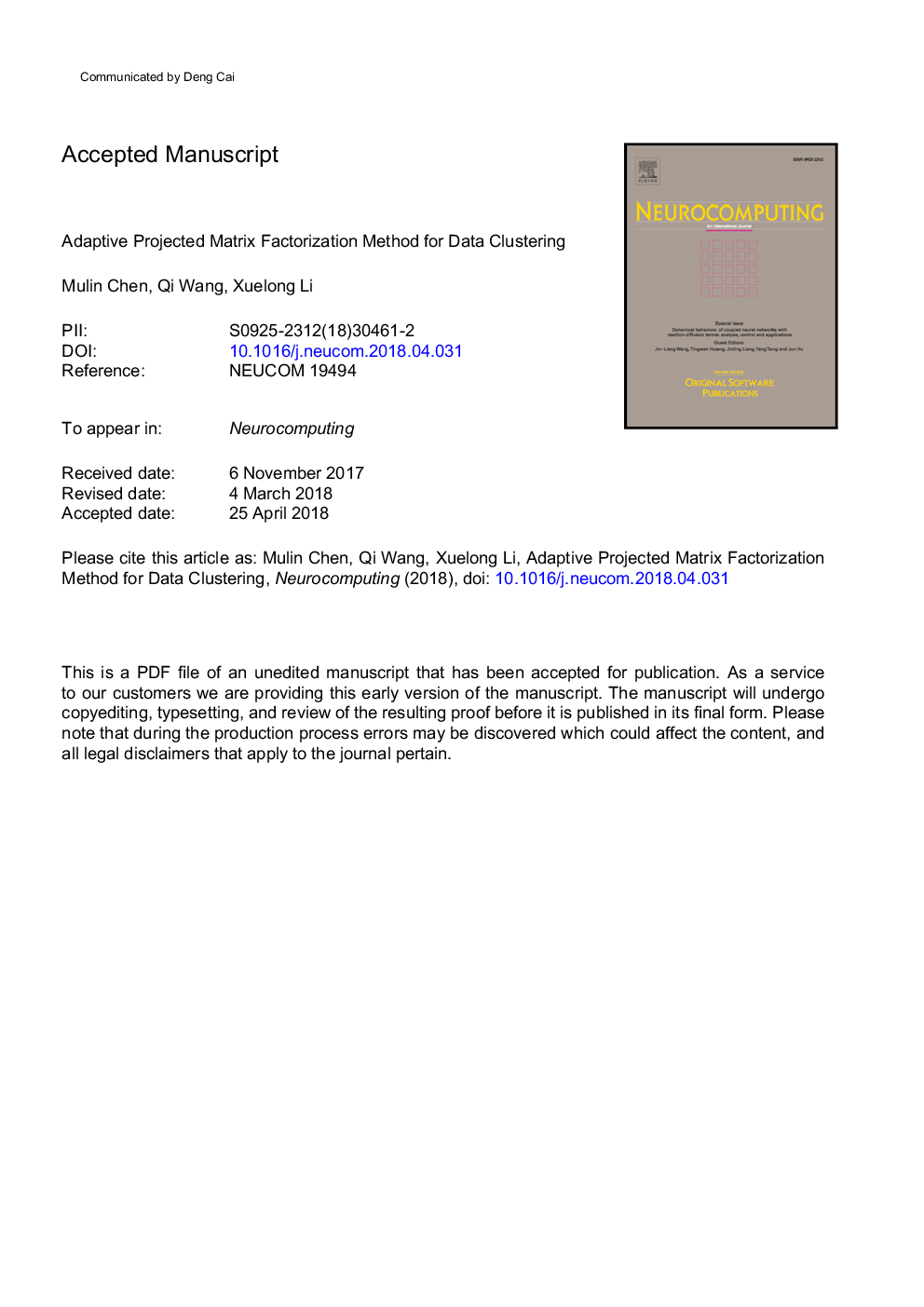| Article ID | Journal | Published Year | Pages | File Type |
|---|---|---|---|---|
| 6863782 | Neurocomputing | 2018 | 23 Pages |
Abstract
Data clustering aims to group the data samples into clusters, and has attracted many researchers in a variety of multidisciplinary fields, such as machine learning and data mining. In order to capture the geometry structure, many methods perform clustering according to a predefined affinity graph. So the clustering performance is largely determined by the graph quality. Unfortunately, the graph quality cannot be guaranteed in various real-world applications. In this paper, an Adaptive Projected Matrix Factorization (APMF) method is proposed for data clustering. Our contributions are threefold: (1) instead of keeping the graph fixed, graph learning is taken as a part of the clustering procedure; (2) the clustering is performed in the projected subspace, so the noise in the input data space is alleviated; (3) an efficient and effective algorithm is developed to solve the proposed problem, and its convergence is proved. Extend experiments on nine real-world benchmarks validate the effectiveness of the proposed method, and verify its superiority against the state-of-the-art competitors.
Related Topics
Physical Sciences and Engineering
Computer Science
Artificial Intelligence
Authors
Mulin Chen, Qi Wang, Xuelong Li,
